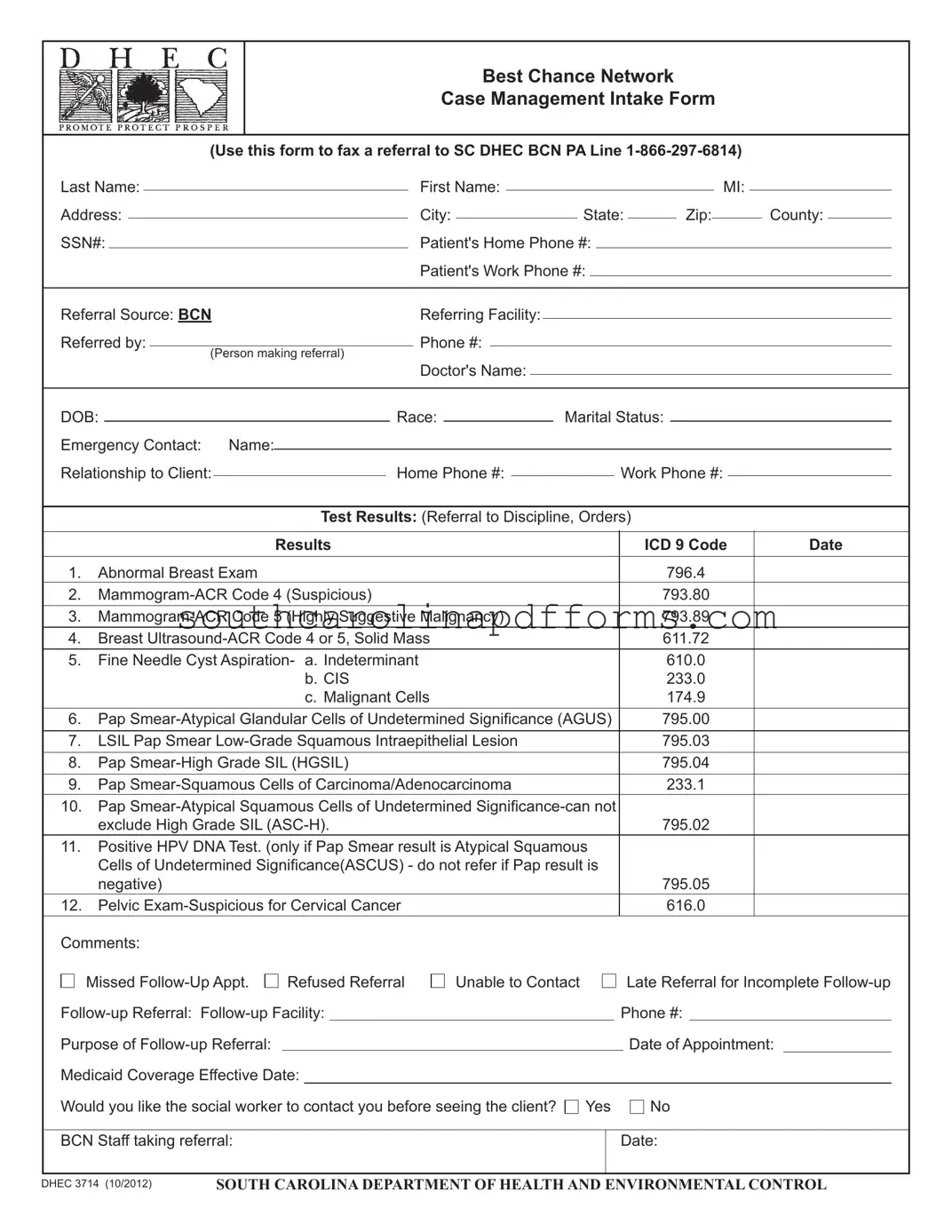Dhec 3714 Template
The DHEC 3714 form, also known as the Best Chance Network Case Management Intake Form, serves as a crucial tool for referring individuals to case management services provided by the South Carolina Department of Health and Environmental Control. This form collects essential information about the client, including personal details and medical history, to ensure that they receive appropriate support. By facilitating communication between healthcare providers and case managers, the DHEC 3714 form plays a vital role in promoting health and well-being for those in need.
Access Dhec 3714 Here
